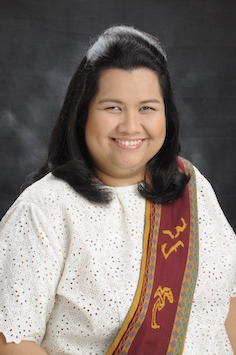"It takes a village to raise a child." This African proverb rings louder for children with autism. The Autism Society Philippines believes that parents should build relationships with a professional compassionate support team who can advise and counsel them, in addressing the myriad of questions they have about raising a child on the spectrum.
"If you have met someone with autism, you have met ONE person with autism." There is no substitute for personal consultations with professionals, which consider traits and behaviors unique to the individual with autism.
As ASP continues to receive questions from parents and family members year-round, we have reached out to the following experts to help answer some concerns on health, education and intervention.
My 12 year old son, already in Grade V doesn't want to attend SPED classes instead he wants to stay in regular class. He is having difficulty catching up with his Math lessons resulting to frustration to the extent of hitting his teacher. He was indefinitely suspended by the school administrator. Is SUSPENSION a right approach to a misbehaving student with ASD case? --- Donna I.
Suspension and expulsion are punishments given for grave offenses. If the school knows that the child has ASD and has admitted him under an inclusion program, he should not get suspended. He can be asked to apologize to the teacher, render community service, etc. Imposing sanctions to students who have committed offenses should enable them to reflect on what they have done wrong and correct such behavior.
The school must help the student express his frustrations in an acceptable manner. For example, the child can use a "feelings wheel." This can be made from a paper plate. Different feelings and their corresponding facial expressions are placed on the paper plate in a manner that the feelings are like numbers on a clock. Just like a clock, a movable pointer shaped like an arrow is placed at the middle of the paper plate. The child points the arrow to his feelings. Depending on his ability, he can be asked to explain what he feels. The teacher could then give out suggestions to the student on what to do.
My son was diagnosed with Global Developmental Delay by a developmental doctor when he was 3 years old. Since then my son attends OT,Speech Therapy and preschool mainstream and is already able to talk in phrases & sentences though still babyish. He is now 5 going 6 years old and his diagnose changed to ASD (high functional). He still attends OT twice a week, speech therapy once a week and is now in Kinder 2. My concern is my son still has quirky behavior problems like smelling people, putting his eyes very close to the TV during his favorite commercial etc then closes his eyes sideways while walking away from the tv as if the images remains in his eyes, and has slight tantrums in public when he is bored (sitting down on the floors). I'm thinking that maybe hes OT is not working anymore since he complains that his therapist is bad and he's afraid of her. Is it a good idea that I will enroll him to ABA therapy instead of OT? Will ABA benefit him? --- Christine R.
Based on the DSM-5, Global Developmental Delay is a "diagnosis is reserved for individuals under the age of 5 years when the clinical severity level cannot be reliably assessed during early childhood." It is "diagnosed when an individual fails to meet expected developmental milestones in several areas of intellectual functioning, and applies to individuals who are unable to undergo systematic assessments of intellectual functioning, including children who are too young to participate in standardized testing. (p.31)" Given this, GDD is only a temporary diagnosis.
First of all, it is recommended that you discuss your concerns with his occupational therapist. Maybe there is a need to identify new strategies to address these concerns. Not all children will react the same way in therapy. Second, it would be best to know more about ABA and what it can do for your child if you are interested in placing him in this program. Have a trial period for it if it really interests you and then observe how your child responds to it.
 |
| Dr. Grace Gomez |
Marie Grace Gomez is a Associate Professor 2 and a faculty member of the Special Education Area, UP College of Education at University of the Philippines Diliman. She is also the Director of the Diliman Learning Resource Center. Doctor Grace is currectly connected with the Counselor Education Area of the College of Education.
She has a Bachelor of Arts Degree in Political Science (1998), a Master of Arts in Education Degree with major in Guidance (2003), a Doctor of Philosophy in Education degree majoring in Guidance (2007) and another Doctor of Philosophy in Education Degree majoring in Special Education (2012).



 Posted in:
Posted in: 

0 comments:
Post a Comment